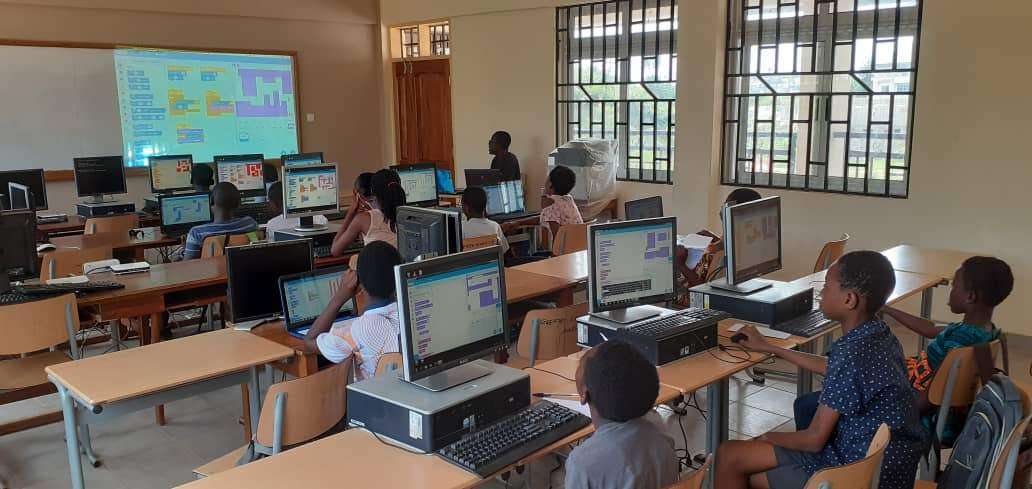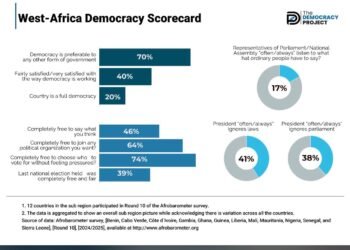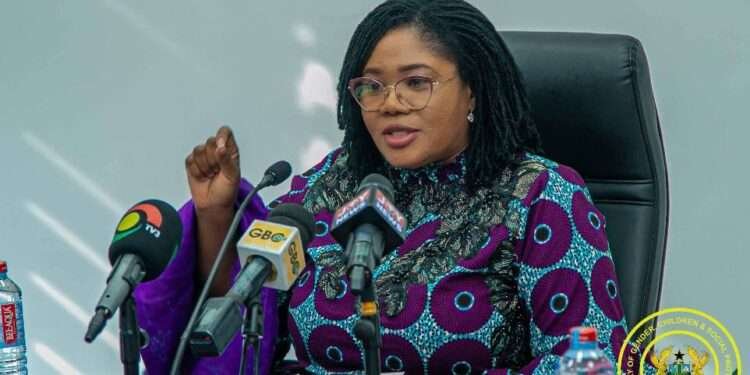The need for Ghanaian students to be at par with other students globally and the advent of COVID-19 have necessitated the integration of digital technologies into everyday learning, such as online courses, virtual classrooms, and digital textbooks at the tertiary level.
The government over the years has put in efforts to digitize every aspect of the country’s socio-economic living, education included, to ensure growth and development in all sectors of the country’s economy.
Digitizing education has given a range of possibilities for both teachers and students, while teachers can now access a wide selection of resources quickly and easily, students can now access tests and grades online with greater speed and accuracy than ever before.
Digitizing education therefore does not only make teaching and learning easy, it improves productivity and there are better outcomes in knowledge assimilation and application.
Recently, the government of Ghana through the Ministry of Education (MoE) launched the Smart School Project (SSP) initiative which is aimed at digitizing the pre-tertiary level of the education sector.
The government’s investment in digitizing the sector is to initiate the country into the Fourth Industrial Revolution and also to ensure the country’s development in a digitized global stage.
“The impact of this program will extend far beyond the confines of our classrooms, shaping the future of our nation and empowering our youth to reach new heights of academic excellence… I am humbled to witness the realization of this initiative which embodies our collective dedication to the nurturing of the next generation of leaders, innovators, and change-makers”.
Dr. Eric Nkansah
The initiative if successful will change the landscape of education in Ghana and also provide a window of economic and development prospects for a country that so much needs it.
Given the increasing reliance on technology on the global stage, it is only prudent for the country to start nurturing the next generation on the use of technology in various areas of social and economic living.
It is also advisable that while the government seeks to introduce pre-tertiary education to digitization, it invests in improving digitization at the tertiary level to ensure that students at the tertiary level are at par with other students in the Western developed countries.
The Loopholes
The government’s Smart School Program (SSP) initiative though a good one, does not appear to have adequate preparation done towards its implementation.
Ideally, the structure and infrastructure that ensure a strategic transition to a technology-enhanced educational environment and support the program’s implementation should be made available before the program is rolled out.
The case in this situation however is that the government did the reverse, jump-starting the program and promising a later construction of a system that aids the proper functioning of the learning tools and gadgets.
“You have to digitize the content to ensure that all these things are compatible, to have checks and balances in them, and ensure that you can actually facilitate learning. To jump to the very last component of digitalization (tablet sharing) worries me and that is not how we do smart education”.
Dr. Michael Ayamga
Furthermore, training for educators and staff on digital tools and pedagogical methods has not been done beforehand to ensure the proper and easy assimilation of both students and teachers into the digitalized education era.
Accordingly, the lack of preparation and orientation of teachers, most of whom are not technologically knowledgeable, will hamper the implementation of the project. This is totally poor planning on the part of the Ministry of Education and the government.
More so, the present technological advancement of the country, as proven by the recent issue of internet connectivity, does create an enabling environment that enables students and teachers to take full advantage of the initiative.
Subsequently, for a full realization of the program, the government through Public-Private Partnerships (PPPs) should invest in minute yet essential areas of technology such as enhanced internet connectivity, which will only not benefit the education sector but also other important sectors of the economy.
Conclusively, a major issue the government has also overlooked is the financial implication of undertaking such a project. Given the continuously changing nature of technology, the program will be a high-cost venture as the government will have to invest in procuring the newest technology every time and again.
READ ALSO: Haiti Declares State Of Emergency























